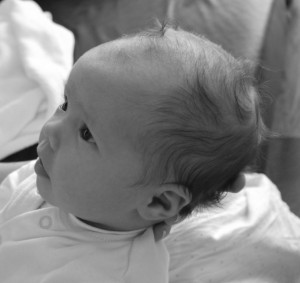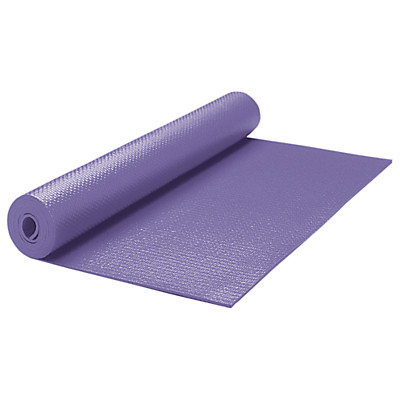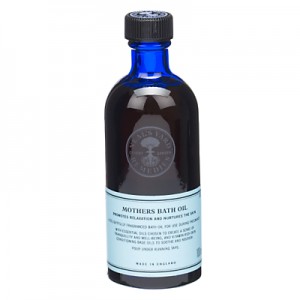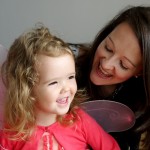Tag: baby
Benefits of Breastfeeding
 No doubt you will have heard Breast is Best.
No doubt you will have heard Breast is Best.
Despite this there’s still a lot of debate when it comes to feeding and what’s best for your baby.
Exclusive breastfeeding, mixed feeding with breast milk and formula or exclusive formula feeding?
The World Health Organisation (WHO) published a statement in January 2011 indicating findings show exclusive breastfeeding up to the age of 6 months is best for babies, as it helps to achieve optimal growth, development and health.
This statement on breastfeeding by the WHO is for all babies, not just babies in developing countries.
My thoughts are that if you can breastfeed and if you want to breastfeed then it’s best for Mum and baby to breastfeed. Nutritionally, emotionally and physiologically.
Here are just some of the Benefits of Breastfeeding
- The fat in breast milk is more digestible for babies, compared with cow’s milk, so there’s a greater absorption of fat-soluble vitamins into baby’s bloodstream.
- The hormones in breast milk promote baby’s growth.
- Breastfeeding will give your baby the best start and allow them to grow and develop at optimal levels.
- Breastfeeding reduces the risk of SIDS (Sudden Infant Death Syndrome).
- Breastfeeding decreases the risk of your baby developing infections as Mum’s breast milk provides antibodies for her baby.
- Breastfeeding can help to reduce Mum’s risk of developing breast cancer.
- Breastfeeding is the best way to burn calories, and you get to sit down and put your feet up at the same time!
- Breastfeeding gives Mum and baby regular skin-to-skin contact which nurtures bonding and provides great emotional benefits.
- There’s a reduced risk of breastfed babies developing childhood diabetes.
- Breast milk provides baby with protection against allergies, eczema and asthma.
What are your thoughts on the benefits of breastfeeding?
Healthy Pregnancy Tips
I want to share the things that helped me to enjoy a healthy and happy pregnancy.
These are my top Healthy Pregnancy Tips which I found easy to practice and essential for relaxation and keeping me supple.
Exercise gently everyday
A gentle walk and some Pregnancy Yoga worked wonders for my flexibility and my mood when I was pregnant. I used a Gaiam Premium Yoga Mat. It’s thicker than a standard yoga mat so it gave me extra cushioning which was really needed during the later months of my pregnancy. It has a great non-slip surface so it stayed in place during my yoga workout and stretching.
Relax, don’t stress!
I found little treats worked wonders. I loved having a warm bath using Neal’s Yard Organic Mother’s Bath Oil for deep relaxation, listening to my favourite music and reading the books on my reading list while I still had some time to myself.
Eat healthy, organic foods
As a Nutritional Advisor and Mum I always make the following recommendations for pregnant women.
Look after your back
Being pregnant naturally puts strain on your lower back as your tummy blooms.
- Don’t lift anything heavy.
- Wear comfortable shoes.
- I used a maternity support pillow to support my back when I was sleeping or relaxing.
Pelvic floor exercises
These are very important during pregnancy and help to strengthen your pelvic floor so your body can support the weight of your pregnancy. Pelvic floor exercises help to prevent stress incontinence.
If this is your first pregnancy you’re probably wondering what stress incontinence is! I certainly didn’t have a clue until we discussed this in our NCT Antenatal Classes. Stress incontinence occurs when you have weak pelvic floor muscles and can cause leaking urine when you cough, sneeze, laugh or exercise.
Here’s a really useful link from the NCT on how to exercise your pelvic floor during and after pregnancy.
Take a Pregnancy Multivitamin
Despite having a healthy diet, as soon as I knew I was pregnant I started taking Vitabiotics Pregnacare Plus Omega 3 and continued to take these throughout my entire pregnancy. These multivitamins plus Omega 3 ensured my baby and I had all the essential nutrients we needed, including the recommended level of 400mcg folic acid.
Pregnancy Diet
As a mum-to-be you’ll probably have many questions about your pregnancy diet.
- What do I eat during pregnancy?
- What shouldn’t I eat during pregnancy?
- How many extra calories do I need when I’m pregnant?
Pregnancy affects every woman differently.
I had bad morning sickness for the first 16 weeks of my pregnancy and then miraculously it disappeared, only to come back during the last 6 weeks of my pregnancy.
It’s important to eat foods that will give you and your baby as many nutrients as possible when you’re pregnant, and always remember your baby eats what you eat.
As a Nutritional Advisor and Mum I always make the following recommendations for pregnant women.
What to Eat During Pregnancy
- Eat a variety of wholefoods everyday – choose from wholegrain rice, quinoa, wholemeal pasta, pulses, rye and wholemeal breads.
- Eat five plus servings of fruit and vegetables everyday, if fresh wash them well – go for brightly coloured fruits and vegetables as these contain more nutrients and antioxidants. Go organic if you can here’s why.
- Eat two portions of fish a week, one being oily fish such as mackerel or sardines.
- Eat cooked rather than raw shellfish.
- Eat organic produce as often as you can – you’ll be avoiding the pesticides that are sprayed on fruit and veg, and the antibiotics and hormones that are given to animals.
- Make sure any egg, cheese, milk, yoghurt and fruit juice products you eat are pasteurised.
- Make sure all meat and poultry is cooked thoroughly.
What Not to Eat During Pregnancy
- Cut down your intake of caffeine with no more than two cups of coffee per day.
- Avoid eating Shark, Marlin, King Mackerel, Tilefish and Swordfish. Limit Tuna Steaks to one a week (about 140g cooked or 170g raw each) and limit canned Tuna to no more than four portions of medium-sized cans (140g drained weight) per week. This is due to the higher than average levels of mercury found in these fish which can damage a baby’s developing nervous system.
- Make sure all eggs are thoroughly cooked until the whites and yolks are solid – to prevent the risk of food poisoning by salmonella bacteria.
- Avoid eating any type of pate, including vegetable pate, as these can contain listeria.
- Avoid eating liver or liver products as these contain high levels of Vitamin A which could harm your baby.
- Avoid eating mould ripened soft cheese, such as brie and Camembert as well as blue-veined varieties, such as Stilton and Danish Blue – this is due to the risk of listeria infection.
- Try to avoid junk food, it provides you and your baby with no nutrients and is likely to add to your pregnancy weight gain.
How many extra calories do I need to eat when pregnant?
It’s probably not until the last 3 months of pregnancy that you’ll need to up your intake of calories.
During months 6 to 9 of pregnancy your baby will be getting larger and growing faster as they put on layers of fat in preparation for their arrival. At this time you’ll probably need to increase your calorie intake per day by up to 200 calories, which is roughly equivalent to two slices of wholemeal toast with butter.
That said, I know when I was pregnant that two extra slices of toast and butter a day were not enough to ward off those hunger pangs in the final months of pregnancy.
Listen to your body and be sensible. Eat healthy snacks if you’re hungry between meals and if you suffer from morning sickness it may help to eat several small meals throughout the day rather than three larger meals.
You can find out more about a healthy Pregnancy Diet with NHS Pregnancy and Baby.







